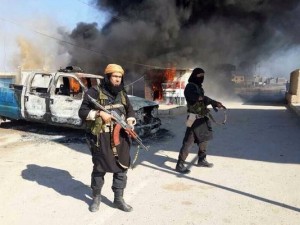Special to WorldTribune.com
BAGHDAD — The Sunni revolt in Anbar has become a leading source of bloodshed in Iraq.
The United Nations said at least 298 civilians were killed last month in the Sunni revolt in Anbar, Iraq’s largest province.

A UN report said the toll, disclosed by Iraqi authorities, could not be confirmed amid the fighting between Baghdad’s security forces and Al Qaida.
“The political, social and religious leaders of Iraq have an urgent responsibility to come together in the face of the terrorist threat that the country is facing,” UN representative Nickolay Mladenov said.
In a report on March 1, Mladenov, an envoy of UN secretary-general Ban Ki-moon, said the bloodshed in Anbar was followed by that in the provinces of Baghdad, Salah Eddin, Nineva, Babil and Diyala. With the exception of Anbar, 703 Iraqis were killed in insurgency and other violence in February.
“Only by working together can Iraqis address the causes of violence and build a democratic society in which rule of law is observed and human rights are protected,” Mladenov said.
Most of the casualties in Anbar were reported in Ramadi, with 189, and
Fallujah, with 109. The two cities have been under the rule of Al Qaida’s
Islamic State of Iraq and the Levant since January.
The International Organization of Migration reported that more than
400,000 civilians were driven out of their homes by the Anbar revolt.
The organization warned that the Sunni-Shi’ite conflict could spread throughout Iraq.
“While up to now the conflict has been confined to Anbar, reports
suggest that insecurity may now also be spreading to the south central and
northern regions, including Nineva, Salah Eddin and Diyala governorates,”
IOM said on Feb. 28.

You must be logged in to post a comment Login